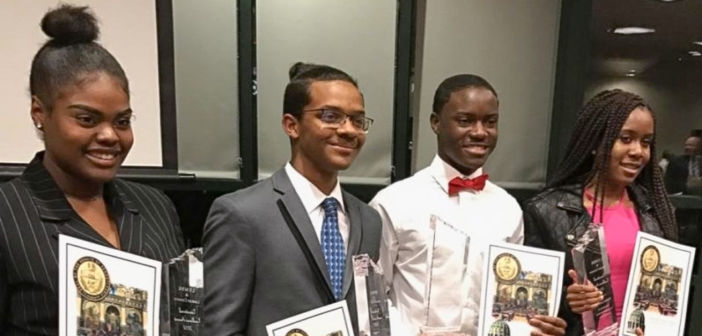Tucked away in the 5-story Flatiron building on Broadway Street, the office of Bethlehem’s local fiscal sponsor, Humanitarian Social Innovations (HSI), is hard to find and easy to miss. Like the organization itself, the workplace isn’t saturated in branding, nor does it clamor for attention. Neat and sparsely furnished, it’s clear that the priority here is in results, not recognition.
There is an almost tangible sense of calmness and optimism within the small but cheery office. Much of that seems to emanate from HSI founder and CEO Linda Rentschler, the force behind many of Bethlehem’s do-good groups.
“There is a unique set of challenges for (nonprofits) to maintain their fiscal sustainability,” Rentschler said. “That’s the place where a fiscal sponsor can come in and alleviate some of those challenges.”
A fiscal sponsor is an organization that provides services and support to nonprofit startups. From sharing advice and experience to helping founders file for tax exemption, these groups exist to ease some of the burdens that often accompany a nonprofit startup venture. HSI fills this niche in the Bethlehem area.
“There are a lot of complications with starting nonprofits, we learned that right off the bat,” said Paul Hodges, the CEO and co-founder of Soltech Solutions and a member of HSI’s board of directors. Hodges, along with co-founder and development engineer Michael Planer, started a nonprofit called Solar for Academics, which installs solar panels on buildings in underdeveloped countries to help children receive higher-quality education.
Dawn Heinbach, the founder of a local student literary program Writing Wrongs, agreed.
“If someone is trying to do a nonprofit, they might have a really good and really innovative idea that can benefit their community,” she said. “But then the cost of actually filing the paperwork, and getting the insurance, and all the other kind of details that you need…is cost-prohibitive when people are starting out.”
Planer, who also sits on HSI’s board of directors, said these hurdles make it difficult for nonprofits to work toward their goals in the beginning. He said when Rentschler, who is Planer and Hodges’ former high school teacher, heard about the problems he and Hodges were facing, she wanted to help — and soon realized they were not the only ones struggling.
“I think the pivotal moment was driving home…having just visited a lawyer and dropped a whole lot of money for practically no advice at all. And we were just thinking, ‘there’s got to be a better way for people who just want to help other people, to help other people,’” Rentschler said.
That “better way” led Rentschler to embark on the startup process herself to start a fiscal sponsorship organization in Bethlehem.
Soon HSI was born, and — consistent with Rentschler’s goal of shortening the time between a nonprofit’s conception and impact — gained traction rapidly. In its three years of operation, HSI has worked with nearly 40 nonprofits.
However, not all of those ventures succeeded. Rentschler said sometimes an idea could be good, but a number of factors might prevent it from growing into maturity.
Other times, though, the hard work pays off. This is the case of Bethlehem Women of Excellence, a group that provides food, holiday gifts for children and events for the underprivileged population in Bethlehem. Founder and president Enid Jackson said fiscal sponsors like HSI are of vital importance to the community.
“When Linda came along, she like turned this light on,” Jackson said, adding that without the help of HSI, Bethlehem Women of Excellence would not be able to accomplish what it does today.
Rentschler attributes this impact in part to HSI’s foundation of servant leadership — a value for which she has always strived.
“As one person, I can only do so much good…but if I leverage what I know and our business model, and I help people who are helping people, then that multiplies my impact,” she said.
Planer said a huge benefit of HSI is how fast that impact can start.
“Being able to just go do what you want to do after a week or two of filling out paperwork with (Rentschler) instead of a year or two of filling out paperwork with the government…it’s a big bonus,” he said.
Without the help of HSI, Hodges added, “we would’ve quit, just like a lot of these others… (HSI) is almost too good to be true. It’s such a blessing.”
Rentschler hopes to continue growing the impact of HSI. Its reach is already global, with nonprofits now located as far as East Africa. In the coming years, Rentschler said she would like to turn HSI into a space where both new and existing nonprofit startups can gather and share resources and experience.
“I love what we do here. I have a big vision for where we’re going to go as an organization,” Rentschler said. “It’s very rewarding to see the ripples of impact as they start. And the more programs that we bring in under our umbrella, the bigger those ripples of impact are going to get.”






Comment policy
Comments posted to The Brown and White website are reviewed by a moderator before being approved. Incendiary speech or harassing language, including comments targeted at individuals, may be deemed unacceptable and not published. Spam and other soliciting will also be declined.
The Brown and White also reserves the right to not publish entirely anonymous comments.